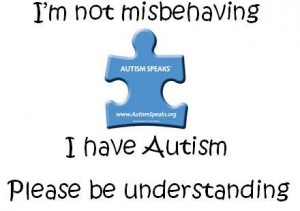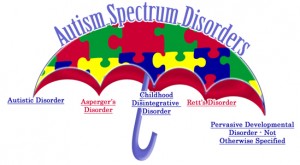Characteristics of Speech in Autistic Children
Autism is a developmental disorder that ranges from mild to severe. Rather than being defined as one particular disorder and set of symptoms, autism is referred to as autism spectrum disorder (ASD). Every child is unique with his own particular signs and symptoms.
As the parent or caregiver of a child with ASD, you have likely noticed some of the typical signs of autism. Children with autism often react differently to being touched, resist changes to routines, and engage in repetitive activities. However, it bears repeating that children with autism spectrum disorder have various symptoms. That said, you will likely notice that your child communicates differently than children without ASD.
Speech and Language Acquisition
Many parents of autistic children report delays in speech and language acquisition. You may also notice that your child does begin to acquire more language, but later “loses it.” In previous years, it was commonly believed that a child who failed to significantly acquire language before the age of five had a dismally low chance of later language acquisition.
In 2009, a study debunked this idea. Scientists evaluated 167 children with ASD who failed to significantly acquire language before the age of five. They found that children who had intensive speech therapy for a significant period of time were able to develop speech. The results varied from children who acquired the use of single words to those who could use complex sentences. The bottom line is that if your child is autistic, find a speech-language pathologist (SLP) for him as soon as possible to begin speech therapy.
Common Characteristics of Speech and Language
Children with autism display varied communication abilities. Some may be completely unable to speak, while others develop extensive vocabularies and can properly form sentences. Some might be able to parrot complex sentences and phrases and use them appropriately, but they might speak in an unexpressive, monotonous tone of voice. Some children may babble, hum, or make “throaty” sounds.
Other common characteristics include problems expressing basic needs and wants, as well as problems with reading comprehension. Autistic children may also inappropriately repeat words and phrases. This is called echolalia. For example, you may hear your child repeat the catchphrase of a popular TV commercial during a situation in which it makes no logical sense to repeat those particular words.
Pragmatic Language Skills
Children with ASD also frequently display difficulties with pragmatic language skills, or social skills as they apply to language. You may notice that your child has problems taking turns in a conversation, sticking to the topic of conversation, or initiating a new topic in a conversation. He may also fail to comprehend the meaning and use of nonverbal signals, stand too close to someone in a conversation, or have trouble with eye contact and facial expressions.
Pragmatic language skills also refer to the appropriate use of language. Your child might not adapt his communication to various situations and people. For example, when introduced to an infant, he might speak to the baby as though she were an adult. When a speech therapist works with an autistic child, she will focus on helping the child understand the meaning and proper use of language, as well as the acquisition of language and other skills, as needed.






Why is it necessary to have language skills (instead of just communication skills)? Is it important, at some stage, to encourage a child with autism to start communicating with English words in correct English grammar, or is it sufficient for a child to communicate in a zone of their own comfort throughout their lives? (For example, only using picture cards.) In our experience working with autistic children, language acquisition is one of the ways in which kids are integrated into ‘mainstream’ society. In India, we’ve particularly seen this amongst people with hearing impairment (and therefore speech disability). Through enhanced language skills, interactions and therefore inclusion increase significantly.